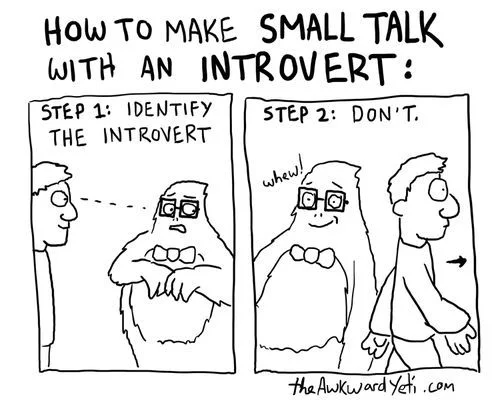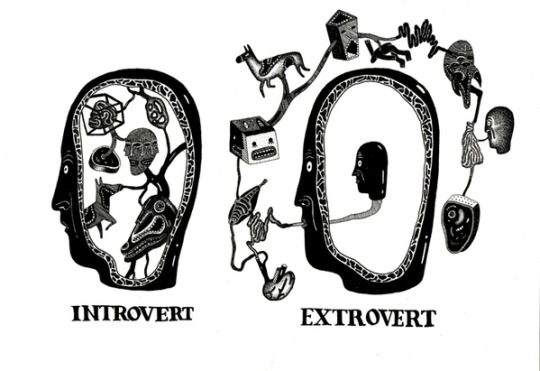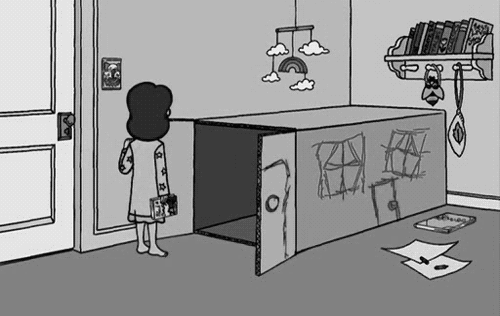Society is designed for
extroverts. Whether it’s in the questions about what you’re doing with your
Friday night, and the subsequent pitying looks when you say, “Reading… at home…
alone” or the “You’re quiet” comments that emerge five minutes after meeting
somebody, it soon becomes apparent that you need to be someone other than
yourself. This is the message drummed into us from school. You should be
forthcoming with answers, you should ask questions and you should make small
talk. But what if that isn’t who you are? What if that isn’t even who you want
to be?
I am content spending many hours
of the day in my own company, whether that is at home or in any number of
places outside. I would rather have a couple of friends I could always rely on
than be surrounded by crowds of acquaintances. I enjoy spending a day sat in
the quiet of a library or sitting by myself in a coffee shop that is heaving
with people, as long as I'm not forced to interact. If I meet you for the first time, I will be the person who wants
to know what makes you unique, what makes you tick, instead of talking about
what was on television last night or what the weather forecast is.
It is only now, at the age of 28,
that I am able to accept myself as an introvert. Instead of feeling deeply
uncomfortable if I’m in a social situation and someone shouts, “Say something!”
at me (it has been known!), I will acknowledge where my strength lies. I no
longer believe that my introversion is “bad” and that it is a trait I should be
ashamed of. I’m slowly building up the confidence to see myself positively and
not as less of a person just because of my preferences.
I may be the quietest person in
the room and I may not want to introduce myself to lots of different people who
are only going to have a passing role in my life. But when I do speak, it is
because I believe what I’m saying may bring something to the conversation. When
I ask to spend time with you, it is because I want to get to know you more and
I am hopeful of a sustained relationship. When I’m with you, I listen to every
word you say because I’m interested and willing to be informed.
I don’t like being the centre of
attention and I would rather not have a day surrounded by lots of people whom I
need to interact with. But I’m not anti-social and I don’t dislike people. I’m
not stuck up; I don’t think I’m too important for the conversation you’re
holding. I’m not simple or uninformed just because the thoughts in my head,
silent to you, don’t escape through my mouth.
Being alone teaches me so much.
If I am able to keep myself motivated of my own accord, if I’m able to generate
my own happiness, it means that I need never be afraid of having time by
myself. I don’t want to become someone who needs
others in order to live fully. Being alone doesn’t mean that I’m lonely. It
means that I am at my most creative and most energised when in my own company,
leaving me better placed to manage social situations as they arise. That said,
introversion doesn’t automatically mean shyness. Those who are shy would like
to be around people and engage in conversation, whilst introverts are content
on their own. The presence of anxiety around socialising is what distinguishes
the two.
We may always be surrounded by
messages proclaiming extroversion as the personality trait we should attain,
but we don’t have to listen. In our introversion - cloistered in libraries,
quietly stood at the edge of a party, exploring the countryside by ourselves - we
can be confident in who we are. We may not have thousands of Twitter followers
or diaries full to bursting with social engagements, but we have much to offer
and we have much to gain from the lives we lead. Surely that is what matters
most?





0 comments:
Post a Comment
No judgment, no hate, because it is already tough enough being a girl.